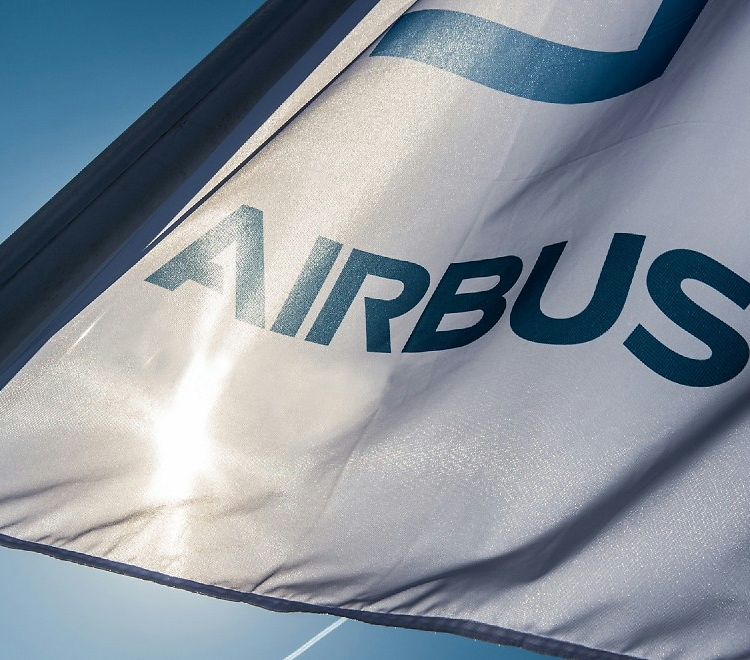. The appeal confirms reimbursable loan instrument is legal
. None of the loans to Airbus prohibited
. None of Airbus’ loans caused material injury to Boeing
. 90 percent of US claims rejected after appeal
. Time for Boeing to accept legal defeat and end masquerade
The World Trade Organization (WTO) report released today constitutes the final blow to the Boeing-sponsored myth that government support to Airbus somehow caused harm to Boeing. The WTO has now confirmed definitively that government loans are a legal instrument and that none of the government loans made to Airbus over the past 40 years were prohibited. It also reaffirms that, contrary to Boeing’s repeated assertions, the subsidies did not cause any material injury to Boeing.
“It’s time for Boeing to accept this legal defeat and end the masquerade. The WTO confirmation of the European loan system is a big victory for Europe,” said Rainer Ohler, Airbus’ Head of Public Affairs and Communications. “We see no significant consequences for Airbus or the European support system from today’s decision, as the WTO has now fully and finally rejected most of the US claims. Therefore, the WTO findings are likely to require only limited changes in European policies and practices,” he added.
The WTO Appellate Body rejected all of the arguments made by the US during the appeal and sided with the EU. The final result further improves on the already substantial rejection of US claims at the first stage in 2009 and now rejects 90 percent of all US claims. It also marks the end of the road for Boeing’s quest to stop European government partnership with Airbus.
In particular, the WTO Appellate Body:
- confirmed that the European reimbursable loan mechanism is a legal and compliant instrument of partnership between government and industry,
- reversed the Panel’s finding that three of the past government loans were prohibited subsidies, thereby finding that none of the past loans were prohibited,
- denied US claims that the full amount of a loan is a subsidy but confirmed that government loans to Airbus contain an element of a subsidy, the size of which depends on the interest rate,
- reversed the Panel’s finding that government-built infrastructure used by Airbus in France constitutes a subsidy,
- reversed the Panel’s finding that European R&T programmes caused harm to Boeing,
- chastised the Panel for incorrectly finding that Boeing lost market share in Brazil, Mexico, Chinese Taipei and Singapore,
- found that there was no possibility of future harm to Boeing in India,
- significantly limited the scope of the Panel’s finding that Boeing lost market share in Australia, China, Korea and the EU.
These results came as no surprise to Airbus. The company has said throughout the WTO process that it expected the majority of Boeing’s claims to be rejected.
Airbus noted that a separate case before the WTO has found that Boeing has benefitted from substantial illegal subsidies. That case is currently under appeal, with a final outcome expected later this year.
. None of the loans to Airbus prohibited
. None of Airbus’ loans caused material injury to Boeing
. 90 percent of US claims rejected after appeal
. Time for Boeing to accept legal defeat and end masquerade
The World Trade Organization (WTO) report released today constitutes the final blow to the Boeing-sponsored myth that government support to Airbus somehow caused harm to Boeing. The WTO has now confirmed definitively that government loans are a legal instrument and that none of the government loans made to Airbus over the past 40 years were prohibited. It also reaffirms that, contrary to Boeing’s repeated assertions, the subsidies did not cause any material injury to Boeing.
“It’s time for Boeing to accept this legal defeat and end the masquerade. The WTO confirmation of the European loan system is a big victory for Europe,” said Rainer Ohler, Airbus’ Head of Public Affairs and Communications. “We see no significant consequences for Airbus or the European support system from today’s decision, as the WTO has now fully and finally rejected most of the US claims. Therefore, the WTO findings are likely to require only limited changes in European policies and practices,” he added.
The WTO Appellate Body rejected all of the arguments made by the US during the appeal and sided with the EU. The final result further improves on the already substantial rejection of US claims at the first stage in 2009 and now rejects 90 percent of all US claims. It also marks the end of the road for Boeing’s quest to stop European government partnership with Airbus.
In particular, the WTO Appellate Body:
- confirmed that the European reimbursable loan mechanism is a legal and compliant instrument of partnership between government and industry,
- reversed the Panel’s finding that three of the past government loans were prohibited subsidies, thereby finding that none of the past loans were prohibited,
- denied US claims that the full amount of a loan is a subsidy but confirmed that government loans to Airbus contain an element of a subsidy, the size of which depends on the interest rate,
- reversed the Panel’s finding that government-built infrastructure used by Airbus in France constitutes a subsidy,
- reversed the Panel’s finding that European R&T programmes caused harm to Boeing,
- chastised the Panel for incorrectly finding that Boeing lost market share in Brazil, Mexico, Chinese Taipei and Singapore,
- found that there was no possibility of future harm to Boeing in India,
- significantly limited the scope of the Panel’s finding that Boeing lost market share in Australia, China, Korea and the EU.
These results came as no surprise to Airbus. The company has said throughout the WTO process that it expected the majority of Boeing’s claims to be rejected.
Airbus noted that a separate case before the WTO has found that Boeing has benefitted from substantial illegal subsidies. That case is currently under appeal, with a final outcome expected later this year.
